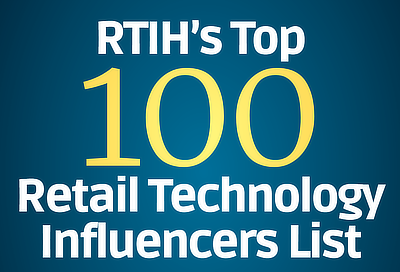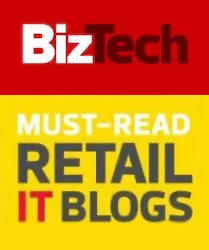"Fools ignore complexity. Pragmatists suffer it. Some can avoid it. Geniuses remove it." Alan Perlis (*)
Last week's post was focused on predicting the 2013 top 10 retail trends for retail. This week want to expand this discussion with some additional insights from some other sources on how technology continues to add both complexity and opportunity to our mutual futures.
Let's start with some additional retail ideas from Dan Hopping of the Next Retail Group. These comments were published in the September 2012 IBM Retail User Group newsletter "The Post". (**)
- The primary trend in retail today is complexity....Each year brings new and more complexity than the previous year and we seem to have fewer resources each year to deal with it.
- Pervasive broadband, even the phone, has caused a significant modification in the consumer's buying habits. Our society is fast becoming centered on our mobile devices... Studies show that people will give up movies, eating out, vacations, and new personal items, but they will not give up their mobile phone and services.
- I don't think the store will ever be dead, but for some categories, it might be wounded.
- Spending on social media has now passed $10 Billion.
- Photos being uploaded will change to videos being uploaded. This means significantly more data storage will be required and new software needed to analyze the videos.
- More and more devices will be brought on line and connected to the Internet. Devices will be smaller, cheaper, and faster.
- The Internet will get an order of magnitude faster.
- Devices are starting to have more "personality". As the devices start to "understand" the owner, the possibilities for one on one marketing become endless.
- Apps will be interactive and be able to negotiate for the consumer.
- On line devices are becoming context and location aware. Augmented reality for location, voice and text with face and voice recognition is now available and becoming less expensive every day. Greater local marketing is possible as a result.
- Predictive analytics will become the standard of business intelligence. Big Data of hundreds of petabytes will be the norm.
- There will be exotic new software techniques available to make sense of all this stuff.
- Payments will change dramatically and not the way it looks right now. There will much fallout and most payments will happen on the mobile device.
- Retailers will need new metrics.
- With everything cross referenced, privacy will be a huge concern...You will no longer own your life.
- At some point, surely there will some push back from the consumer.
IDC in their 2013 predictions supports multiple of Dan Hopping's ideas. IDC's technology projections for 2013 include (***):
- Worldwide IT spending will exceed $2.1 trillion, up 5.7% from 2012. Sales of smart mobile devices including smart phones and tablets will grow 20%, generate 20% of all IT sales, and drive 57% of all IT market growth. Excluding smart mobile devices, IT industry growth will be just 2.9%.
- Mobile devices will surpass PCs as the method of choice for online access. The number of people accessing the Internet through PCs will shrink by 15 million over the next four years, while the number of mobile users will increase by 91 million.
- IT spend in emerging markets will grow 8.8% (2X growth rate of developed countries) to more than $730 million or 34% of all IT spending.
- SaaS will grab one or more of the top share positions in the major application software markets within the next three years. In servers, Amazon will become a top 2 or 3 server/virtual machine vendor by 2016.
- The tablets market will grow at least 43% to more than 170 million in 2013.
- Mobile platform software providers will be further rationalized. If a mobile platform doesn't get at least 50% of developers interested in developing apps on it, its demise is imminent. Vulnerable platforms include Microsoft (currently 33% of developers) and RIM (9%).
- Hot M&A buys will be in SaaS. IDC is predicting $25 billion in SaaS acquisitions over the next 20 months, up from $17 billion in the past 20 months.
- PaaS (Platforms as a Service) will experience a 10X growth in 2013 from the current fewer than 100 in 2012. More broadly focused cloud platforms such as Salesforce.com's Force.com, Microsoft Azure, and Amazon Web Services will become more commoditized.
- By 2012, 80% of IT investments will directly involve line of business executives. At least half the time, the line of business executives will be the lead decision maker.
- In Big Data, mergers and acquisitions will see vendors adding more discovery, predictive analytics, and text and rich media analytics technologies to their portfolio.
So what does it all mean?
- As Dan Hopping correctly stated, the pace of complexity is accelerating. Complexity also opens the world to new opportunities to both simplify the business models and find more attractive niche target markets. In other words, complexity will accelerate market segmentation.
- Emerging markets will accelerate their adoption of new technology trends. Product lifecycles in emerging markets will shorten.
- At your fingertips will be devices that increase the level of discovery of new ideas, new global friends, and new business models.
- Software and business models around it will increase in importance. Devices will indeed be smaller, faster, and cheaper.
- Professional services will also experience substantial growth in helping deal with increased complexity.
- The blur between office and personal technology devices will increase. Your online brand will create a virtual permanent online footprint that will increasingly be scrutinized by individuals interested in your potential contributions.
- The increased data requirements will dramatically expand cloud and analytics services. Specialized applications will increase to make sense of all the additional information.
- The deployment pace of IP security solutions will accelerate. Companies will leverage the faster networks to drive smarter stores, smarter buildings, and smarter solutions.
- The pace of change will continue to accelerate. As pointed out in the "success formula" post, while time may be your enemy, passion to make each minute count should be your friend. Leverage the new technologies to increased success.
Listen to Alan Perlis. Take the balance of 2012 to think through the complexity of your current business models. Understand how technology is reshaping your approach to the market. Create a priority list of potential changes. Focus on removing the complexity to increased success starting January 1, 2013.

(*) Alan Perlis - American computer scientist known for his pioneering work in programming languages. First individual to receive the Turing Award. His last position was Chair of Computer Science at Yale University (Wikipedia)
(**) http://ow.ly/fNaRJ (***) http://ow.ly/fNgai
















